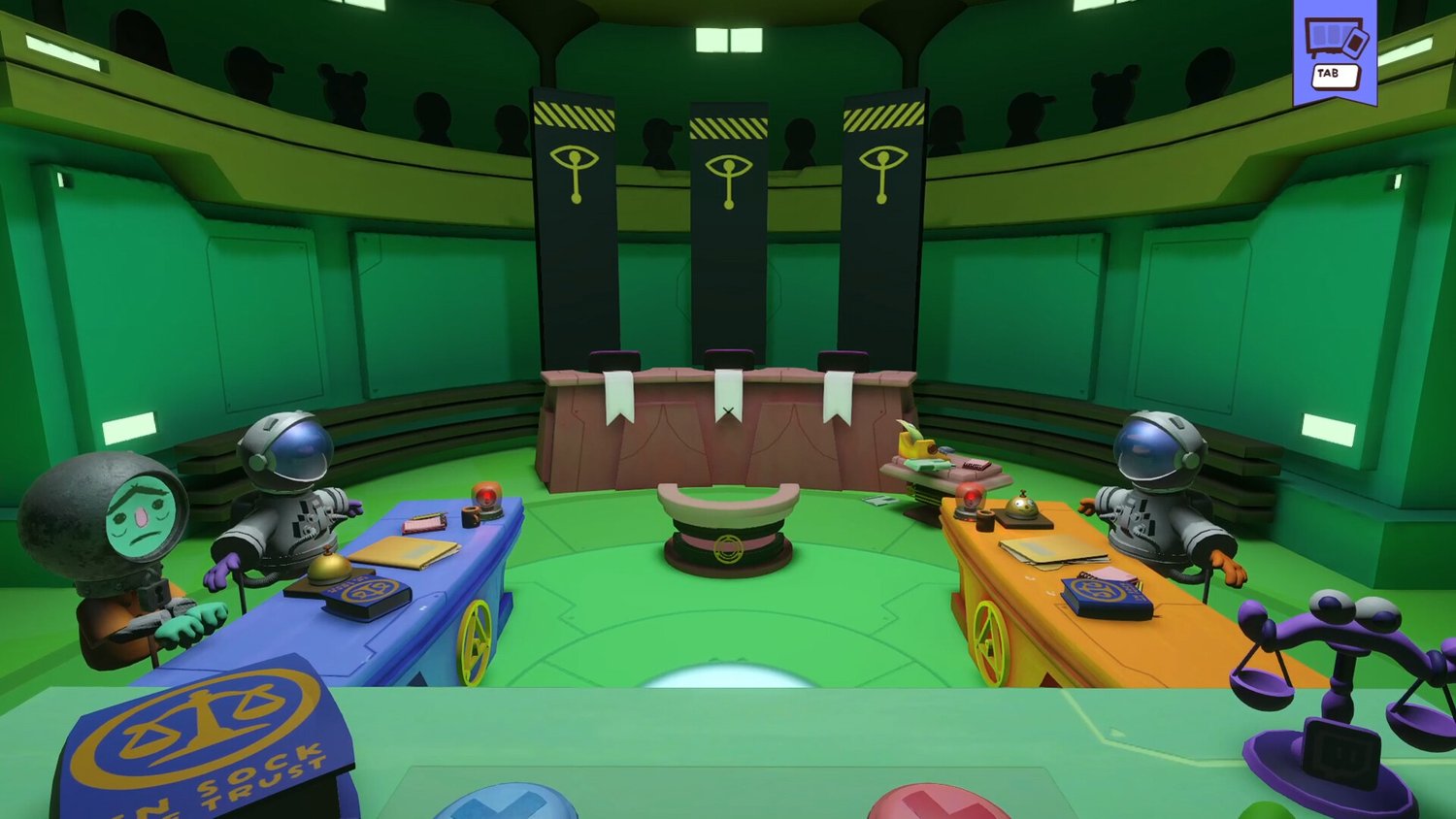Enter the chaotic courtroom of Guilty Sock, a party game where absurd legal battles unfold through nonsense arguments and slapstick logic. Forget real-world law—here, ridiculous crimes and unhinged roleplay reign supreme.
Roles to Play
Matches involve 3–9 players, each assigned one of these chaotic roles:
-
Judge: Controls the courtroom flow, selects speakers, and delivers verdicts with a dramatic gavel slam.
-
Prosecutor: Secretly chooses the accused and their outrageous crime. They observe silently but control evidence.
-
Defense: Fights for the accused by presenting arguments and evidence once given the floor.
-
Witness: A single player manipulated by both sides to support their case.
-
Jurors (up to 3): React in real-time, vote on guilt, and influence the trial’s outcome.
-
Bailiff: Mutes unruly players to maintain order.
-
Journalist: Crafts three satirical headlines to skew perceptions of the trial.
The judge, prosecutor, and defense dominate dialogue, while others fuel chaos or observe the madness.
Sock Customization & Evidence
Before trials, personalize your experience by:
-
Outfitting your sock with quirky cosmetics.
-
Building custom evidence decks for cases, like “Client failed to shower for a week” or “Caught microwaving fish in the office.”
-
Choosing between three themed courtrooms:
- Default Trial
- Trial of the Crowns
- Cosmic Order Trial
Trial Structure
-
The prosecutor secretly assigns a fake crime to the accused.
-
Random evidence is generated for both sides.
-
The judge controls the flow:
- Mouse wheel toggles speaker permissions.
- Red light = prosecutor’s turn
- Blue light = defense’s turn
- Green light = present evidence
-
Judge’s toolkit:
- Summon witnesses
- Mute disruptive players
- Finalize the verdict
-
Jurors vote via color-coded banners reflecting their stance.
-
The journalist publishes three headlines to skew the narrative.
Notepads help key roles track the case’s absurd twists as chaos escalates.
FAQ
Q: Can I talk during the trial?
Everyone except the prosecutor can speak freely. The prosecutor stays silent while framing charges.
Q: How does presenting work?
The judge allocates speaking rights via the gavel. Green light = present your case.
Q: What does the journalist do?
They write three humorous headlines to mock or twist trial events.
Q: Can jurors speak?
Yes—they can comment, react, and ultimately decide the verdict through votes.
Q: How do I win?
Victory isn’t the goal. Embrace the chaos, craft wild arguments, and prioritize laughs over logic.

